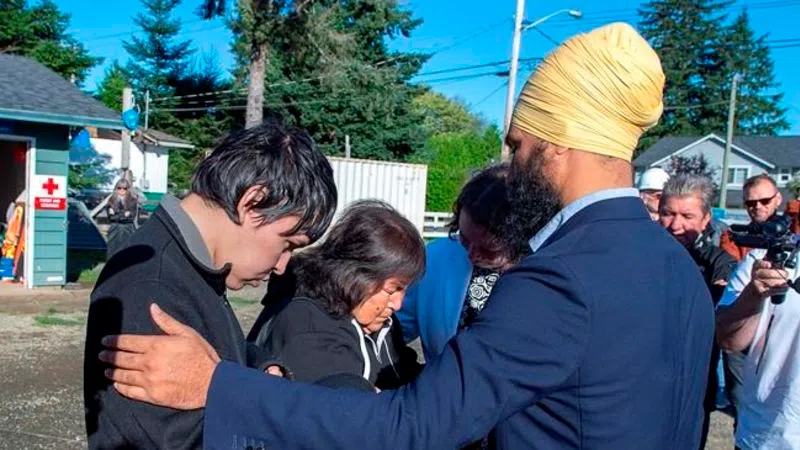
Singh campaigns on key NDP turf of Vancouver Island, pledges rent subsidy
NDP Leader Jagmeet Singh spent a third consecutive day campaigning in the critical battleground of British Columbia — this time on Vancouver Island where his party is trying to prevent a surge by the Greens.
Singh’s pitch added detail to the New Democrats’ plan for housing affordability. If elected, he pledged to offer annual subsidies of up to $5,000 as way to deliver immediate help for families struggling to pay their rents.
He repeated that a New Democrat government would build half-a-million new affordable houses across the country over the next decade. But he said that since people need help right away, the NDP would subsidize rent for nearly 500,000 families.
“This will make the difference for families that are unable to pay their bills, for families that are making a tough choice between do they pay for their groceries or do they pay rent,” Singh told reporters at a construction site in Campbell River, a city of about 35,000 people on the island’s east coast.


